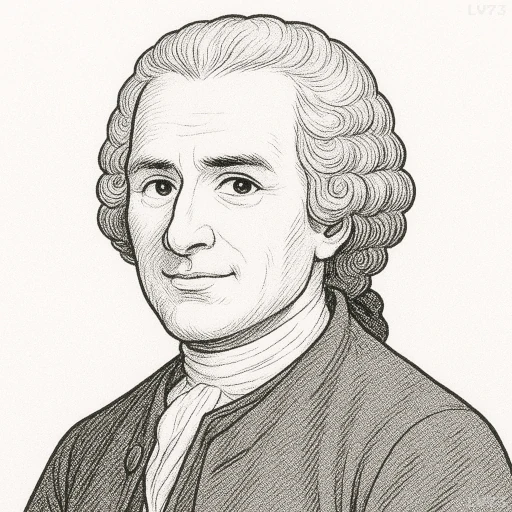“It is a mania shared by philosophers of all ages to deny what exists and to explain what does not exist.”

- June 28, 1712 – July 2, 1778
- Born in Geneva
- Philosopher, political philosopher, writer, composer
table of contents
Quote
“It is a mania shared by philosophers of all ages to deny what exists and to explain what does not exist.”
Explanation
In this quote, Jean-Jacques Rousseau critiques the tendency of philosophers throughout history to focus on abstract concepts or metaphysical speculations that are detached from the real world. Rousseau suggests that philosophers often spend their time denying or dismissing the obvious and tangible realities of life, while simultaneously attempting to explain things that have no basis in reality. This criticism reflects his skepticism toward intellectuals who, in their pursuit of theoretical knowledge, lose touch with practical, empirical, or natural experiences. Rousseau implies that the true understanding of life and the world comes from direct experience and observation, rather than from overcomplicating or distorting reality with intellectual constructs that lack true relevance.
Historically, Rousseau’s critique stems from his broader philosophical and social views. As an Enlightenment thinker, he was familiar with the increasing focus on rationality and scientific reasoning during his time. However, he was also critical of philosophers who, in his view, were too disconnected from human nature and the realities of everyday life. Rousseau believed that much of the abstract theorizing, especially around social contracts or natural rights, was misguided and failed to address the fundamental, real problems of society. For him, philosophy should be grounded in the human experience, rather than in theoretical ideas that contradict or ignore the tangible realities of existence.
In modern times, Rousseau’s quote remains relevant as it critiques the ways in which intellectuals or experts can sometimes become disconnected from practical concerns. In today’s world, we may see similar trends where theoretical or conceptual ideas—whether in fields like philosophy, economics, or politics—are pursued at the expense of addressing real-world issues. Rousseau’s words remind us that intellectual work should serve to understand and address the practical, human aspects of life, and that true wisdom lies in understanding and embracing the reality of existence rather than getting lost in speculative theories that have little bearing on the lived experience.
Would you like to share your impressions or related stories about this quote in the comments section?
